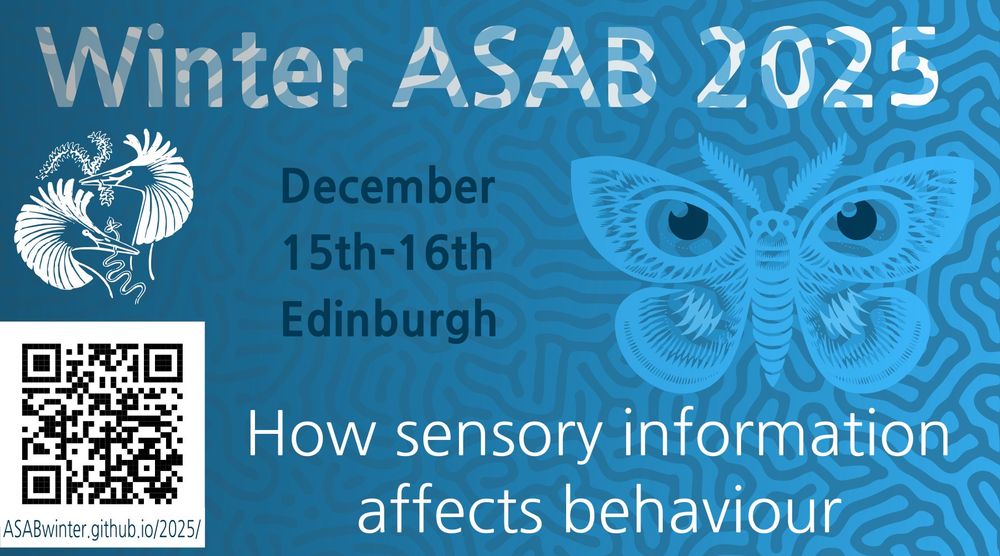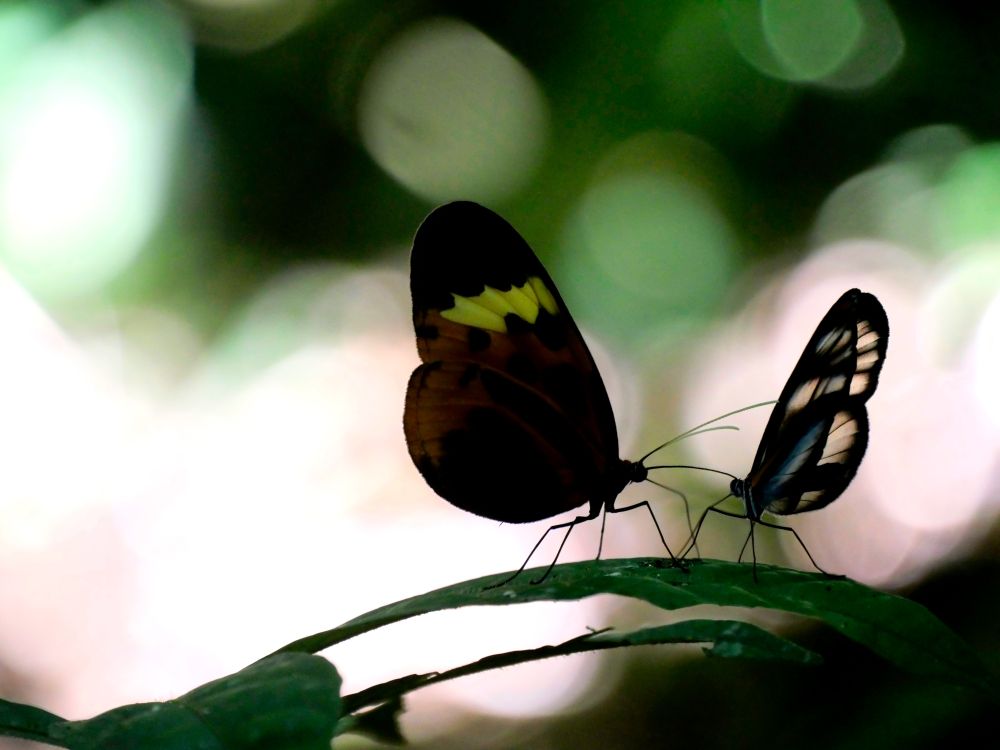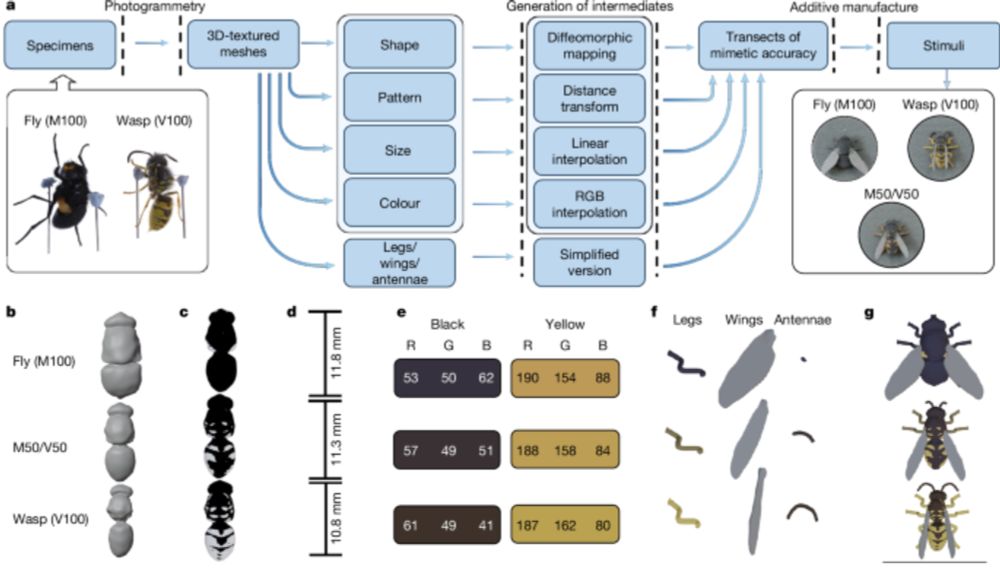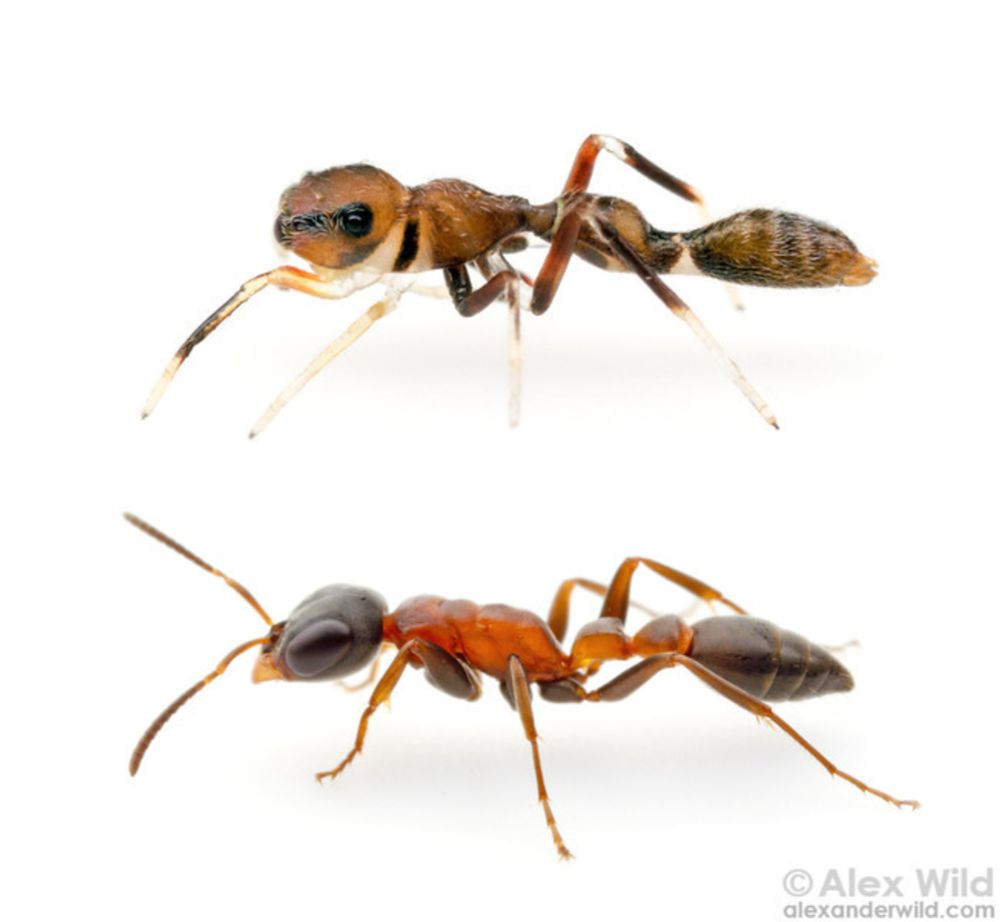
Dr Christopher Taylor
@mimicryin3d.bsky.social
Evolutionary biologist with interests in a variety of areas including prey defence and response to heat stress. Keen user of fancy computational methods. He/him.
Reposted by Dr Christopher Taylor
Funded PhD position available 🎉 Come and work with me in Helsinki to uncover the pathways producing colourful tiger moth wings. Lots of options for genomics, CRISPR, fieldwork, behaviour experiments… Email with questions! jobs.helsinki.fi/job/Helsinki...

September 24, 2025 at 8:53 AM
Funded PhD position available 🎉 Come and work with me in Helsinki to uncover the pathways producing colourful tiger moth wings. Lots of options for genomics, CRISPR, fieldwork, behaviour experiments… Email with questions! jobs.helsinki.fi/job/Helsinki...
Reposted by Dr Christopher Taylor
Check out the graphical abstract for a paper recently published in Ecological Modelling.
I have papers published in Ecological Modelling. Never again, I guess.
I have papers published in Ecological Modelling. Never again, I guess.

August 25, 2025 at 11:05 PM
Check out the graphical abstract for a paper recently published in Ecological Modelling.
I have papers published in Ecological Modelling. Never again, I guess.
I have papers published in Ecological Modelling. Never again, I guess.
Looking forward to it - come and chat about molecular adaptations to heat
And some poster presentations too!
Christopher Taylor @mimicryin3d.bsky.social in Poster Session 1 on Monday, at poster number P01.261:
'Convergent molecular evolution of thermal tolerance in mammals '
Christopher Taylor @mimicryin3d.bsky.social in Poster Session 1 on Monday, at poster number P01.261:
'Convergent molecular evolution of thermal tolerance in mammals '
August 17, 2025 at 4:51 PM
Looking forward to it - come and chat about molecular adaptations to heat
Reposted by Dr Christopher Taylor
I have arrived in Barcelona for ESEB 2025!
I will be talking about microRNA and the evolution of the mammalian placenta on Tuesday at 14:30 in Meeting Room 113
@eseb2025.bsky.social
I will be talking about microRNA and the evolution of the mammalian placenta on Tuesday at 14:30 in Meeting Room 113
@eseb2025.bsky.social

August 17, 2025 at 9:11 AM
I have arrived in Barcelona for ESEB 2025!
I will be talking about microRNA and the evolution of the mammalian placenta on Tuesday at 14:30 in Meeting Room 113
@eseb2025.bsky.social
I will be talking about microRNA and the evolution of the mammalian placenta on Tuesday at 14:30 in Meeting Room 113
@eseb2025.bsky.social
Reposted by Dr Christopher Taylor
Winter ASAB @asab.org on *Sensory Ecology* register and submit your abstracts now (abstract deadline just a month away)!
I'm organising the conference this year with @lauraakelley.bsky.social and Innes Cuthill
Register & get more info here: asabwinter.github.io/2025/
I'm organising the conference this year with @lauraakelley.bsky.social and Innes Cuthill
Register & get more info here: asabwinter.github.io/2025/

July 29, 2025 at 3:24 PM
Winter ASAB @asab.org on *Sensory Ecology* register and submit your abstracts now (abstract deadline just a month away)!
I'm organising the conference this year with @lauraakelley.bsky.social and Innes Cuthill
Register & get more info here: asabwinter.github.io/2025/
I'm organising the conference this year with @lauraakelley.bsky.social and Innes Cuthill
Register & get more info here: asabwinter.github.io/2025/
Gorgeous natural history and gorgeous photos!
July 23, 2025 at 6:32 PM
Gorgeous natural history and gorgeous photos!
Reposted by Dr Christopher Taylor
So very excited for the magnum opus of my #PhD to finally be out in @pnas.org. 🎉🎉 We demosntrate that mutualistic co-mimicking tropical butterflies not only converge in light microhabitat but, as a consequence, have also converged in visual system morphology! 1/n😀
www.pnas.org/doi/abs/10.1...
www.pnas.org/doi/abs/10.1...

July 16, 2025 at 9:29 AM
So very excited for the magnum opus of my #PhD to finally be out in @pnas.org. 🎉🎉 We demosntrate that mutualistic co-mimicking tropical butterflies not only converge in light microhabitat but, as a consequence, have also converged in visual system morphology! 1/n😀
www.pnas.org/doi/abs/10.1...
www.pnas.org/doi/abs/10.1...
Reposted by Dr Christopher Taylor
Latest from the Nature Podcast 🔊 3D-printed fake wasps help explain bad animal mimicry
https://go.nature.com/4lcluqU
https://go.nature.com/4lcluqU

3D-printed fake wasps help explain bad animal mimicry
Hear the biggest stories from the world of science | 2 July 2025
go.nature.com
July 5, 2025 at 9:14 AM
Latest from the Nature Podcast 🔊 3D-printed fake wasps help explain bad animal mimicry
https://go.nature.com/4lcluqU
https://go.nature.com/4lcluqU
Thank you Tom Sherratt and Karl Loeffler-Henry for the excellent commentary on our article
Predation experiments using models of edible flies and stinging wasps provide some answers to a long-standing evolutionary puzzle in mimicry research
https://go.nature.com/4lzU4uQ
https://go.nature.com/4lzU4uQ

3D printing offers a way to study mimicry by insects
Predation experiments using models of edible flies and stinging wasps provide some answers to a long-standing evolutionary puzzle in mimicry research.
go.nature.com
July 5, 2025 at 11:56 AM
Thank you Tom Sherratt and Karl Loeffler-Henry for the excellent commentary on our article
Why do imperfect mimics (such as many hoverflies) exist? We created 3D printed replicas of flies, wasps and our own custom intermediates and then "asked" various predators what they thought of our 3D stimuli. Read all about it here: www.nature.com/articles/s41...

Mapping the adaptive landscape of Batesian mimicry using 3D-printed stimuli - Nature
Birds have an excellent ability to learn to discriminate harmless insects from those that they mimic on the basis of subtle differences in appearance.
www.nature.com
July 2, 2025 at 6:32 PM
Why do imperfect mimics (such as many hoverflies) exist? We created 3D printed replicas of flies, wasps and our own custom intermediates and then "asked" various predators what they thought of our 3D stimuli. Read all about it here: www.nature.com/articles/s41...
Brilliant preprint out from some lab colleagues - do check it out
Take a look at our work on miRNAs and their involvement with placental phenotypes. It's great to see this work finally see the light of day - huge thanks to everyone involved with the manuscript.
How did mammal placental diversity evolve? miRNAs play a significant role - indeed their repertoire is predictive of phenotype. Congrats to all: esp 1st author @jfennbio.bsky.social & all in @niamhforde.bsky.social group. Thanks to @ukri.org and @leverhulme.ac.uk. www.biorxiv.org/content/10.1...
July 2, 2025 at 1:04 PM
Brilliant preprint out from some lab colleagues - do check it out
After being very quiet on social media for a couple of years, I've been spurred to get organised by a bit of good news that I'd like to share very soon. Watch this space!
July 2, 2025 at 12:41 PM
After being very quiet on social media for a couple of years, I've been spurred to get organised by a bit of good news that I'd like to share very soon. Watch this space!


